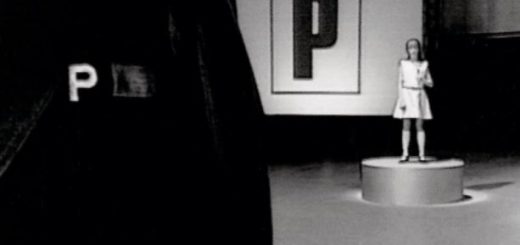Silence by Portishead Lyrics Meaning – Unraveling the Enigmatic Echoes of a Haunting Ballad
Lyrics
O que você dá retornará para você
Essa lição você tem que aprender
Você só ganha, o que você merece”
Tempted in our minds
Tormented inside lie
Wounded and afraid
Inside my head
Falling through changes
Did you know when you lost?
Did you know when I wanted?
Did you know what I lost?
Do you know what I wanted?
Empty in our hearts
Crying out in silence
Wandered out of reach
Too far to speak
Drifting unable
Did you know when you lost?
Did you know when I wanted?
Did you know what I lost?
Do you know what I wanted?
Portishead’s ‘Silence,’ the opening track to their third studio album ‘Third,’ serves as a gateway into a realm of introspective gloom and textured enigma. The English band, known for their trip-hop mastery, intertwines the abstract with the painfully human, concocting a sonic landscape that invites a deep dive into its coded verses.
Sewn with heavy cords of ambiguity, the lyrics to ‘Silence’ echo a dialogue between lost souls and inner demons. It’s a composition that betrays the fragility of human connections, echoing a sentiment of longing and the incessant search for meaning in the silences that punctuate our existence.
The Echo Chamber of Tormented Souls
‘Tempted in our minds, tormented inside lie,’ sings Beth Gibbons, her voice weaving through the spacious beats and haunting ambience. The song thrusts us into the psychological whirlpool of human temptation and the lies we tell ourselves. It’s an unrelenting look at inner conflict, the torment that lurks behind our eyes, showcasing Portishead’s proficiency in painting bleak emotional landscapes with their music.
From the outset, ‘Silence’ sets a foreboding tone, grounding the listener into an almost cinematic experience. The track’s profound sadness is palpable, as Gibbons’s timbre modulates between desolation and a subdued, fiery resolve. Her wisdom, or perhaps her warning, resonates as she navigates the dissonance between thought and truth.
The Alchemic Law of Three and Karma’s Whispers
The opening lines, although muffled and secondary, are a Portuguese phrase that roughly translates to ‘Be alert to the rules of three. What you give will return to you. This lesson you have to learn. You only earn what you deserve.’ This cryptic preamble, sourced from a sample of an old movie on karma, sets the stage for a tale of cosmic justice and the inescapable consequences of one’s actions.
These words introduce a hidden backbone to the song, suggesting the lyrics might explore the cyclical nature of giving and receiving, both materially and emotionally. In ‘Silence,’ everything seems to be a metaphor for the bigger, often harsher realities of life. Gibbons’s voice acts as the conduit for these existential revelations.
Cries Unheard in the Vast Emptiness
When Altbeth Gibbons’s haunting vocals utter, ‘Empty in our hearts, crying out in silence,’ she unveils the stark disconnect between the heart’s yearnings and the words that fail to convey them. ‘Silence’ communicates the agony of unrealized desires—the sorrow that accompanies the things we were unable to manifest in love, life, and the trials in between.
The poetic terseness of the lyrics resonates with the isolation of the human soul, the echo of silence in the abyss of one’s being. It’s a testament to the song’s power to evoke such a visceral response, as listeners are compelled to confront their own silent struggles. The song resonates with anyone that has ever felt that their inner turmoil was a soundless void, incapable of being heard or understood by the outside world.
Decoding the Melancholy: The Hidden Message Within
Beyond the melancholy, ‘Silence’ carries a cryptic layer of wisdom and introspection, a call to mindfulness in our interactions. The constant questioning—’Did you know when you lost? Did you know when I wanted? Did you know what I lost? Do you know what I wanted?’—serves as a sobering reminder of the disconnection between intention and perception, desire and fulfillment.
These lines seem to reflect on missed opportunities and the disconnect that occurs when one’s feelings or needs go unrecognized. These rhetorical musings urge listeners to consider the implications of neglect, the depth of human yearning, and the importance of earnest communication in forging authentic connections.
The Resonance of Heartache: Lines That Linger
Deeply woven into the elegiac narrative of ‘Silence’ are the lines ‘Wounded and afraid, inside my head; falling through changes.’ This poignant phrasing captures the essence of an individual navigating through the tumultuous transitions of life. It’s these words that drivers home Portishead’s message of human vulnerability, as we each grapple with our transformation, hoping not to lose ourselves in the process.
The song’s memorable lines encapsulate the internal dialogue that is both universally relatable and intimately personal. Portishead has struck a haunting chord that resonates long after the music fades, a chilling harmony that rings true to the cacophony of the soul in pain, in doubt, and ultimately, in search of healing within the silence.








